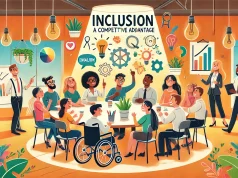In the ever-evolving tapestry of the modern workforce, the gig economy has emerged as a vibrant and defining thread. Characterized by its flexibility, autonomy, and diverse opportunities, this sector has become a beacon of potential for many. However, beneath the veneer of its progressive promises, a sobering reality endures: women and non-binary individuals are navigating an uneven playing field, often marred by persistent gender inequities and deep-seated biases.
The gig economy, a term coined to describe the burgeoning array of short-term, freelance, and contract-based work, ostensibly offers a departure from the rigid structures of traditional employment. Yet, this landscape is not immune to the gender pay gaps that have long plagued the workforce. Studies and anecdotal evidence alike suggest that women and non-binary gig workers frequently encounter lower rates of pay compared to their male counterparts, even when accounting for factors like experience and field of work.
Access to lucrative opportunities is another realm where disparities are pronounced. High-paying gigs, notably in tech, finance, and certain creative sectors, often remain bastions of male predominance. This skewed representation is not merely a mirror of historical trends, but a reflection of ongoing barriers such as gender stereotyping, network exclusivity, and undervaluing of skills typically associated with women and non-binary individuals.
Societal expectations and caregiving responsibilities also play a formidable role in shaping the gig economy’s gender landscape. With women still shouldering the majority of domestic and caregiving duties, the flexibility of gig work becomes both a blessing and a curse. It allows for the juggling of personal and professional commitments, yet it often leads to the acceptance of lower-paid, less time-intensive gigs, reinforcing the gender divide.
Amidst these challenges, technology stands as both a culprit and potential catalyst for change. Algorithms that govern gig platforms can perpetuate biases, yet technological advancements also hold the power to create transparency, match talent with opportunity equitably, and provide support systems that transcend geographical and socio-economic barriers.
Companies and platforms operating within the gig economy can drive transformation by implementing policies and practices that actively promote gender equity. This can include transparent pay structures, equitable project distribution, support for caregiving responsibilities, and the fostering of communities that empower women and non-binary individuals.
To support gender equity in the gig economy, individuals can advocate for fair practices, mentor and sponsor underrepresented talent, and consciously support businesses that prioritize equity. At a systemic level, creating robust networks, offering professional development, and facilitating access to high-value gigs can serve as powerful tools for change.
Ultimately, cultivating an environment of diversity, inclusion, and equity within the gig economy does more than rectify disparities—it unlocks a reservoir of innovation and growth. When all members of society have a fair chance to thrive, the economy itself becomes more resilient, dynamic, and reflective of the world it serves. We stand at a crossroads where the choice is ours to build an equitable gig economy that harnesses the full spectrum of human potential, encouraging not only individual success but collective prosperity.




























